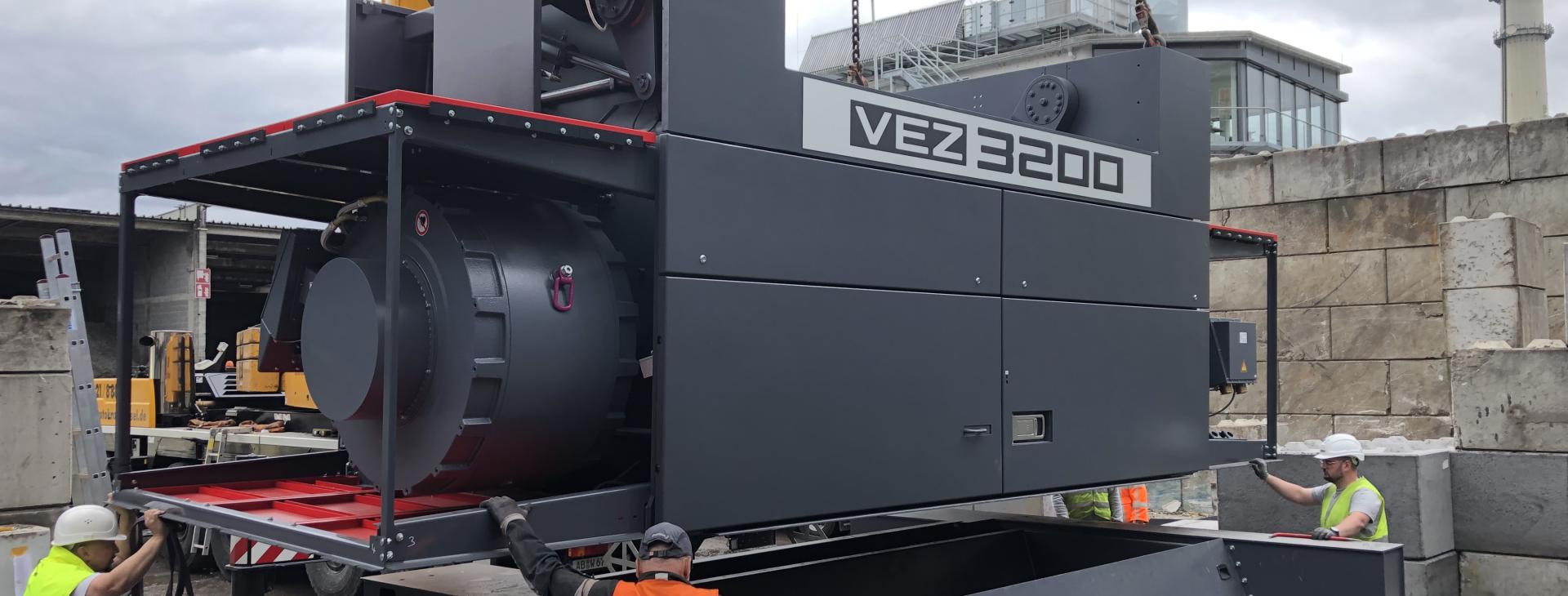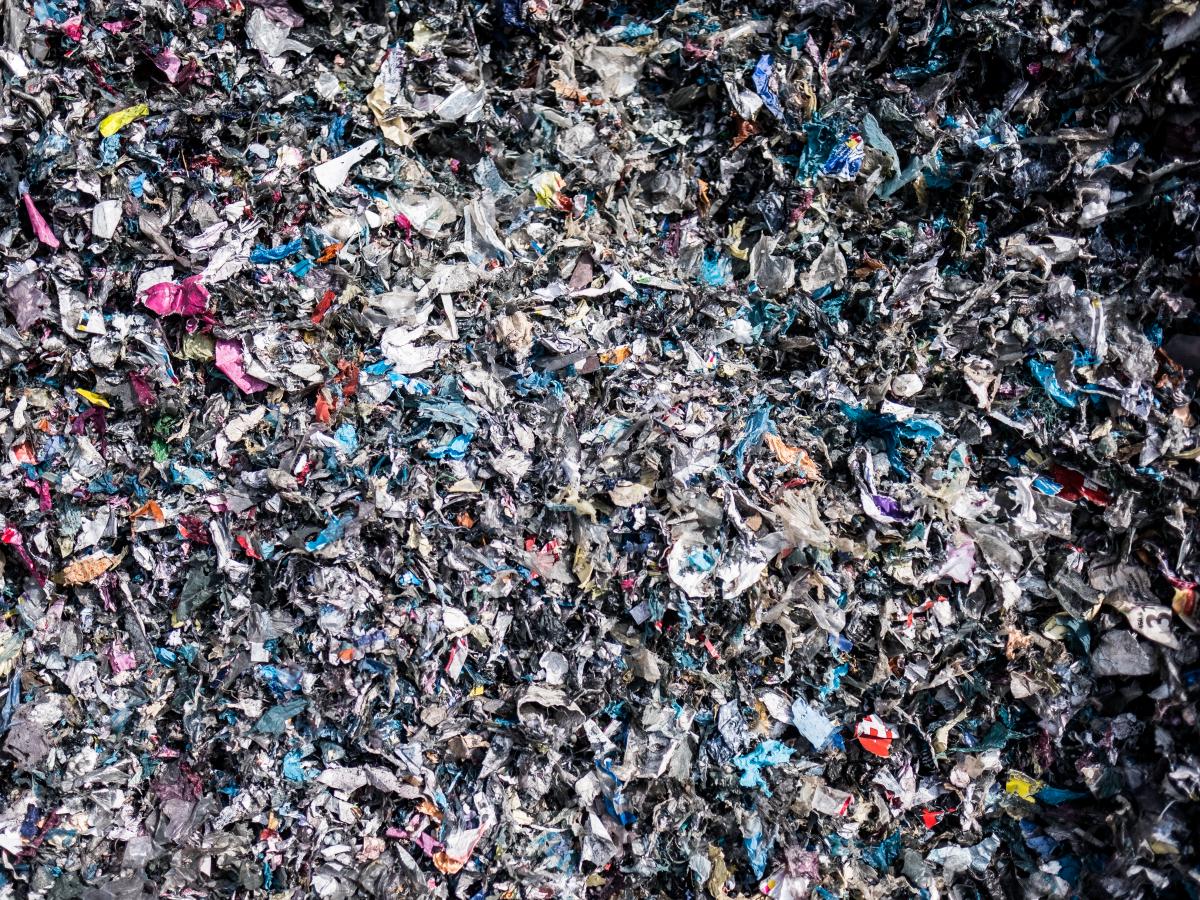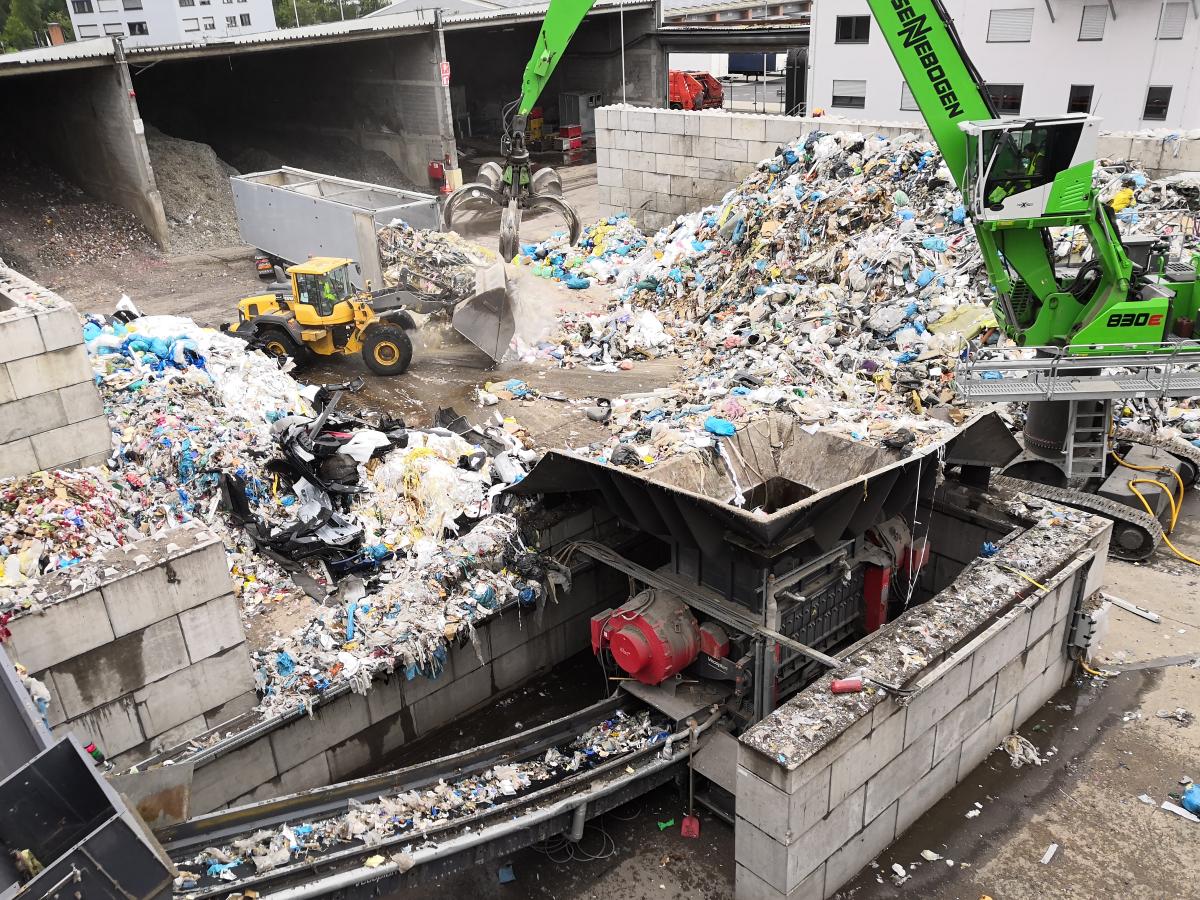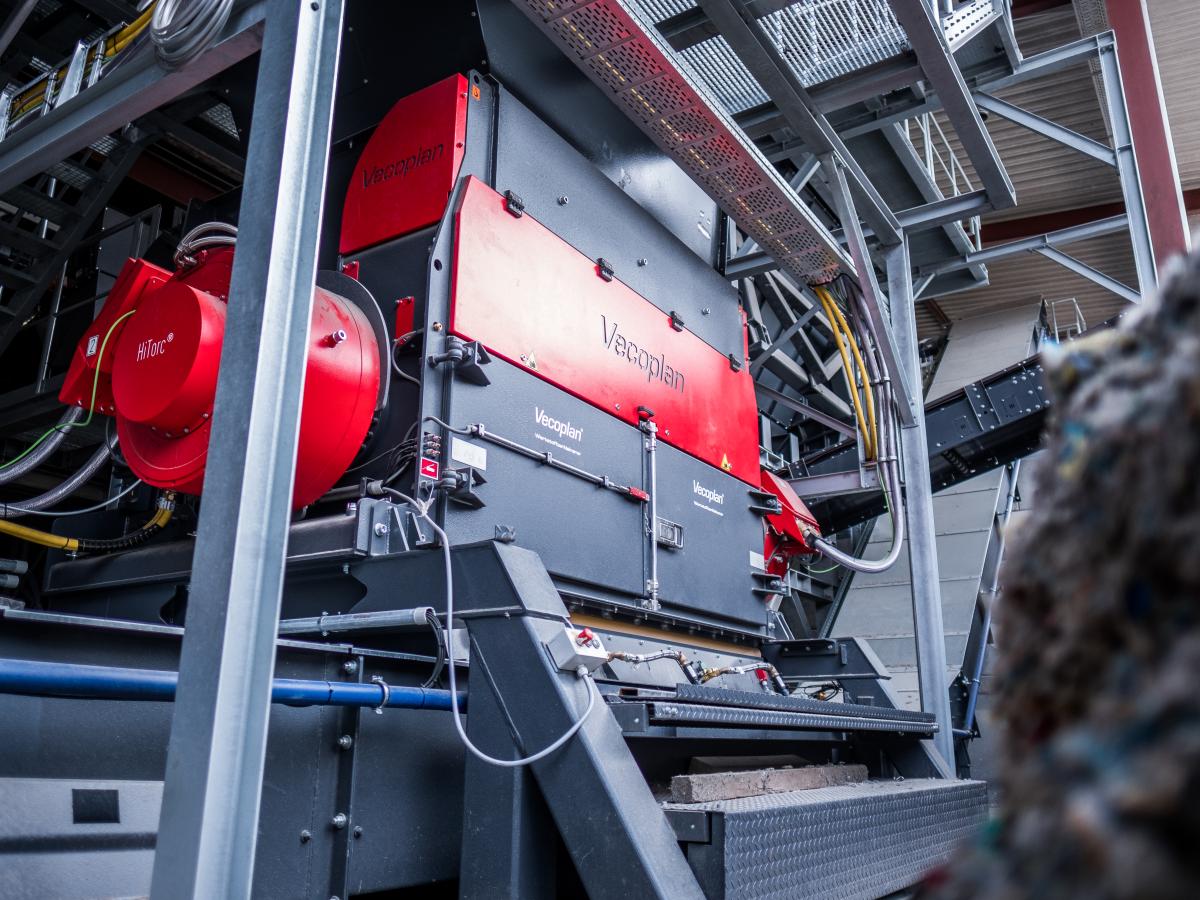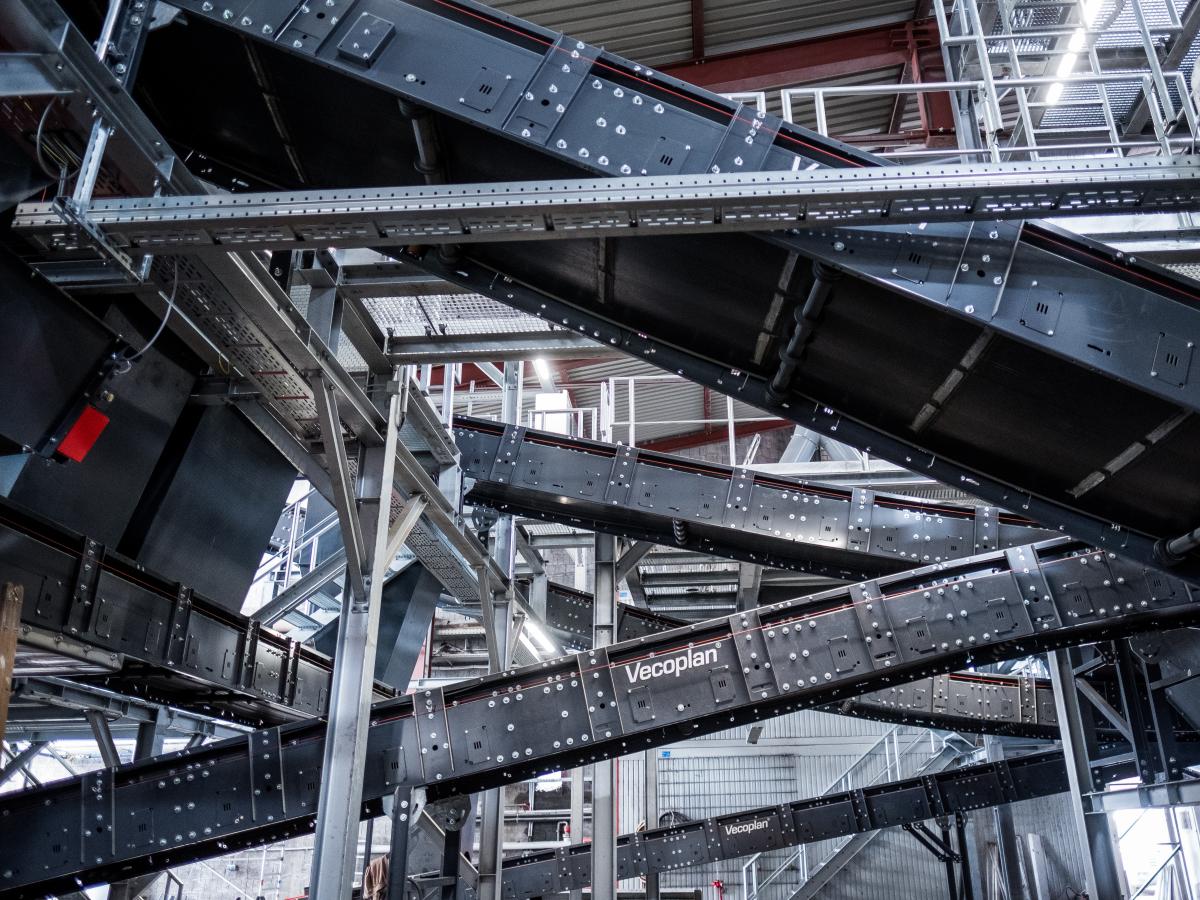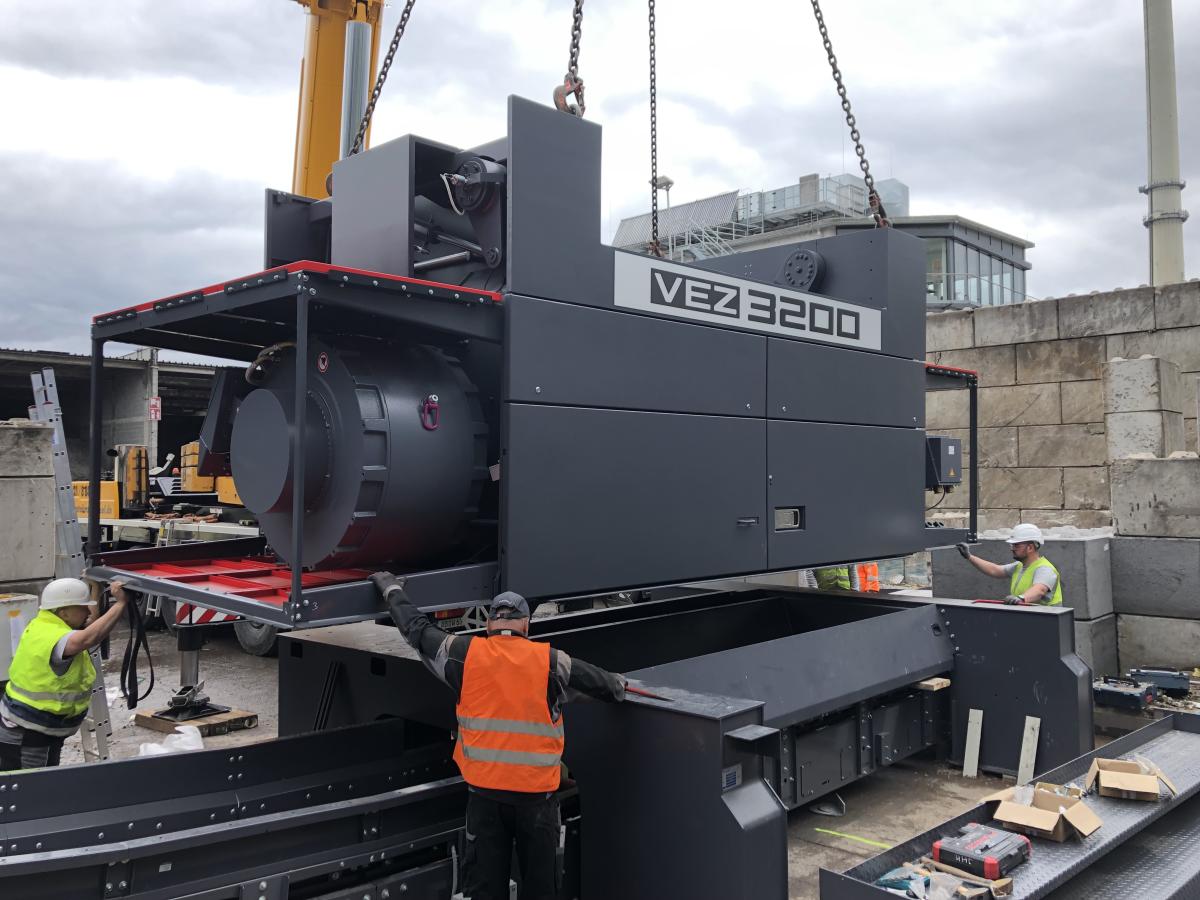At its headquarters in Aschaffenburg the waste management company Helmut Westarp GmbH & Co. KG processes surplus production material, bulk waste, large packaging material and unsorted commercial waste to generate refuse-derived fuel (RDF) of different qualities. Fractions with a medium calorific value are supplied to waste incineration plants for thermal utilisation and to cement works, which are the main customers. High-calorific waste can also serve as a substitute for fossil fuel in the main burners.
The midsize, family-operated company was founded in 1967. In the early years it focused on recycling waste paper. Today Westarp supplies waste fractions of different kinds to some 5,000 customers from various industries in the Rhine-Main area. At a certain point, however, the company saw that its existing processing line was no longer able to deliver the required performance. In addition, the line was not flexible enough to switch reliably between fuels of different quality.
A reliable and versatile partner
In order to avoid interfaces and minimise its administrative costs, Westarp looked for a company that could provide a processing line from a single source, from project planning to installation to commissioning. The choice fell on Vecoplan AG.
Based in Bad Marienberg in the Westerwald region of Germany, Vecoplan AG develops and manufactures machines and plants for processing and handling alternative fuels derived from plastics, paper, domestic waste and commercial waste. At present it has about 500 employees worldwide. The company’s services include consultancy, finding effective solutions and detailed planning. Its integrated project management covers installation, commissioning and comprehensive service. Customers receive everything from a single source.
“Our task was to supply an energy-efficient system with high availability and high output for generating refuse-derived fuels of high quality,” says Vecoplan’s sales manager Tim Hamer. “Westarp wanted to be able to handle different kinds of fuels of different combustion quality. This new system had to be integrated into its existing processing line.” Vecoplan therefore worked closely with the customer to design the system for both high performance and an ability to consistently generate different kinds of fuels.
Vecoplan provided Westarp with two high-performance pre-shredders for feeding material to a plant with settings for various sorting and shredding requirements. For quality assurance the shredders were flanked by processes for removing ferrous and non-ferrous materials, several NIR separation processes and two air separators. Vecoplan also supplied the complete conveying equipment: trough conveyors, pendulum distributors, chain conveyors and double screw conveyors.
No long downtimes
Vecoplan’s engineers had to take the existing layout at Westarp into account. The new systems had to be integrated into the company’s sorting facility. Space was limited, so Vecoplan determined an optimised setup based on 3D measurements. It first worked out the engineering details for the entire system. In order to generate output of good quality, the machines were configured in advance to handle different kinds of input material. “Throughout the process of implementing the extensions and modifications, it was important to permit only short interruptions,” said Hamer. “This allowed us to hold production downtimes to a minimum.”
Reliable operation
Material is delivered to the different material flows mainly by Westarp’s transport service. Vehicles of other companies also contribute. The commercial waste has a bulk density of about 200 to 250 kilogrammes per cubic metre, and for production waste the density is about 120 to 180 kilogrammes per cubic metre. Employees pre-sort the material using grapples and wheel loaders and pass it to the pre-shredder. Vecoplan’s VVZ 2500 double-shaft shredder then reduces it to a particle size of less than 200 mm. This material is continuously fed to an adjoining conveyor belt. The belt passes an overbelt magnet which removes ferrous material. A three-fraction air separator then divides the material into heavy, medium and light fractions. The light fraction can additionally be separated into high-calorific and medium-calorific fractions depending on the setting. “The fractions can be adjusted by the company according to market requirements, and combined operation is also possible,” explains Hamer.
Another overbelt magnetic separator removes ferrous materials from the heavy fraction. The heavy material is then conveyed to a non-ferrous metal separator. Non-ferrous metals are removed by the eddy-current method and collected in a separate container.
The medium fraction generated by the air separator is also freed of ferrous metals, after which it is passed to a screen that removes pieces larger than 200 millimetres. Larger material is collected in a bin and delivered to the pre-shredder as needed. Residues from the sorting facility are also collected in the bin. Material smaller than 200 millimetres is deposited in a bin below it. Westarp supplies these medium-calorific refuse-derived fuels to customers for thermal utilisation.
The light fraction is likewise conveyed to an overbelt magnetic separator after air separation. The material then goes to re-shredding. A pendulum distributor evenly distributes it between two VEZ 2500 TT re-shredders which Vecoplan has developed especially for RDF processing. This series is equipped with a high-performance cutter that is designed for maximum throughput. The machines also have a very high level of technical availability. They are fitted with patented W-rotors for maximum cutting performance. The 288 concave cutters are arranged in eight rows. Each knife can be used several times. Users benefit from uniform granularity, a long service life and low operating costs. Accessibility for maintenance is excellent. The re-shredder has two frequency-controlled synchronous HiTorc drives, each with a power of 247 kilowatts and a 315 kilowatt frequency converter. Energy savings of 20 to 30% compared to conventional motors are possible. The drives are noiseless, almost maintenance-free and can easily be started up with a full machine.
If one of these machines has to be serviced, Westarp can continue running the line with the other. The re-shredders reduce the light fraction to a particle size of less than 30 millimetres at throughput rates of 15 tonnes per hour per re-shredder. A drum magnet extracts further ferrous impurities from the re-shredded material. Westarp’s facility runs in two eight-hour shifts, five days a week. The result is high-calorific refuse-derived fuel which Westarp collects, unloads and transports to its customers. This was the state of affairs in April 2018.
Extension for greater flexibility
In late 2020, Westarp commissioned us to provide an extension,” says Hamer. “We were asked to increase the system’s flexibility so that Westarp could meet the rising demands of its customers for refuse-derived fuels.” The goal was to significantly increase the throughput to 50 tonnes per hour, ensure the flexibility of the system and have a good connection to the existing equipment. For this purpose, Vecoplan installed an additional single-shaft pre-shredder from the VEZ 3200 series to generate material with a particle size of less than 250 millimetres. Ferrous material was then removed and an air separator created heavy and light fractions.
“This new part of the facility now supplements the existing one and can be operated in three different modes,” says Hamer. Operating mode 1 is for production of high-calorific RDF. After pre-shredding and separation of ferrous material, the light fraction is fed to the conveyor belt. The re-shredder then processes it to high-calorific RDF. The heavy fraction is then merged with the medium fraction from the existing facility and further processed.
In operating mode 2 Westarp can produce medium-caloric RDF. After pre-shredding and separation of ferrous material, the material is conveyed to the heavy fraction of the air separator and merged with the medium fraction of the existing facility, where it is further processed.
Operating mode 3 feeds the material to the sorting facility. After pre-shredding and separation of ferrous material, the material is fed to a separate belt conveyor via the heavy and light fraction of the air separator of the sorting facility. The sorting facility can process a wide range of materials for recycling.
Vecoplan supplied everything for this project from a single source – from project management to assembly to commissioning. It installed the electrical equipment, conveyors, separators, sorters and the steel structure. “Thanks to this extension, Westarp has a highly flexible system,” says Vecoplan expert Hamer. “It is able to handle a wide variety of input materials with ease and can respond to varying requirements placed on the output.”
